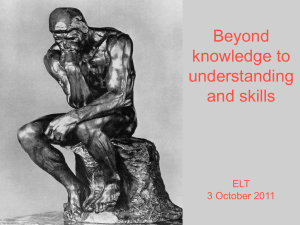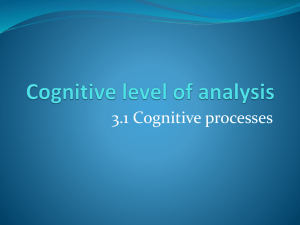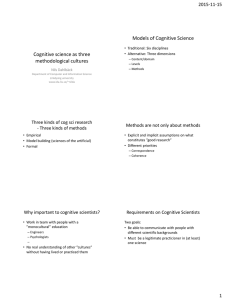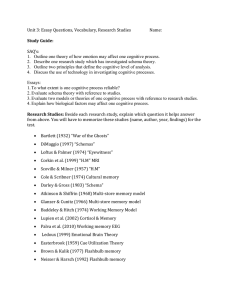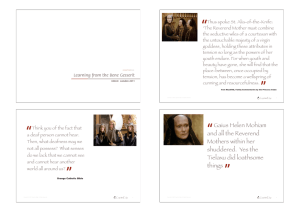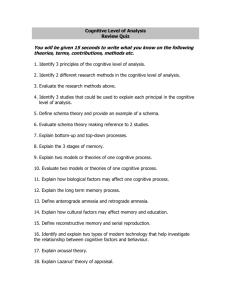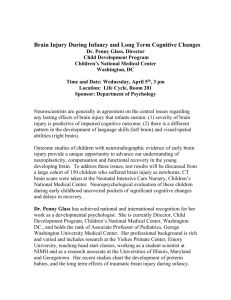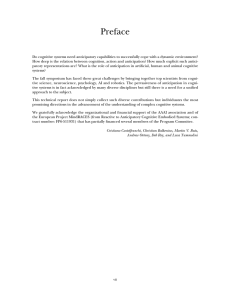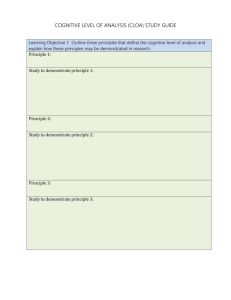Cognitive Etiology of MDD - XX and AG
advertisement
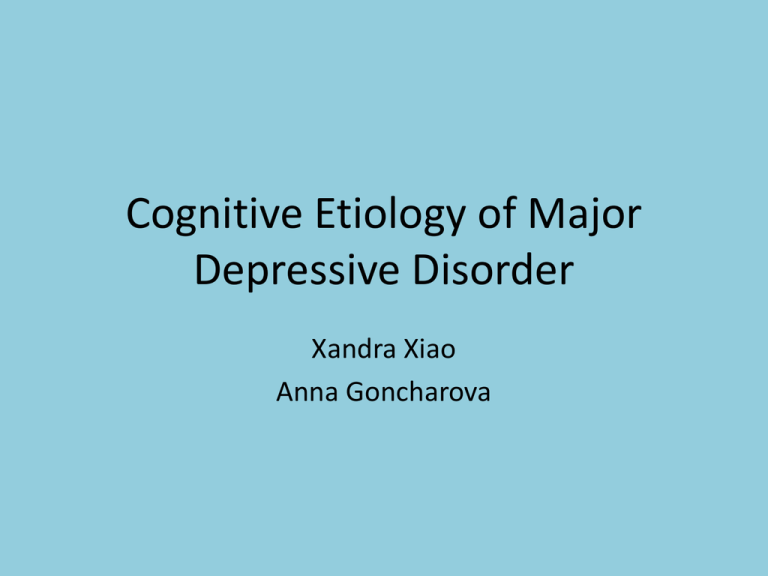
Cognitive Etiology of Major Depressive Disorder Xandra Xiao Anna Goncharova At the cognitive level of analysis: – Depressed cognitions – Cognitive distortions – Irrational beliefs Can result in disturbances of the mood. They are contributing factors, not the sole causes. Cognitive style theory • Ellis (1962) states that psychological disturbances come from having irrational expectations and beliefs • “My work must be perfect” “I did not do well on my last test” “Therefore I am stupid” Theory based on schema • Beck (1976) claimed that depression comes form schema processing where schemas and self-perception interfere with information processing. • Theorized the idea of a “triad”: 1. Overgeneralization 2. Non logical inference 3. Dichotomous Supporters of the idea that cognition and depression are linked. • Blackburn (1988) showed that depressed people had disturbed thought processes • Frude (1998) used a prospective study to support the claim. • Alloy et al. (1999) longitudinal study Counter-claims • Studies only show correlational relation not causational relationship • Implications: CBT (Cognitive behavioral therapy) tries to change patient’s thinking style.



